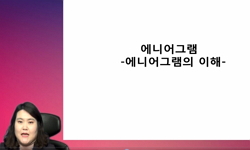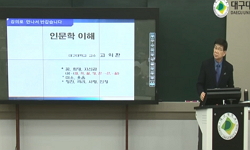The purpose of the study was to investigate the construct validity of the Enneagram Personality Type scale developed by factor analysis. The author built a conceptual framework for examining 9 personality type on the basis of Riso(1996) and on other r...
http://chineseinput.net/에서 pinyin(병음)방식으로 중국어를 변환할 수 있습니다.
변환된 중국어를 복사하여 사용하시면 됩니다.
- 中文 을 입력하시려면 zhongwen을 입력하시고 space를누르시면됩니다.
- 北京 을 입력하시려면 beijing을 입력하시고 space를 누르시면 됩니다.
에니어그램 성격 유형 검사 타당화 연구
한글로보기https://www.riss.kr/link?id=G3779657
- 저자
-
발행기관
-
-
발행연도
-
-
작성언어
Korean
-
주제어
에니어그램 ; 성격유형 ; 에니어그램 성격 유형검사
-
자료형태
한국연구재단(NRF)
-
0
상세조회 -
0
다운로드
부가정보
다국어 초록 (Multilingual Abstract)
The results of exploratory factor analysis by SPSS program showed that Enneagram personality type scale assumed to have 9 distinguishable latent factors: reformer, helper, performer, individualist, observer, loyal-skeptic, generalist, leader, and peacemaker. The means, standard deviations, of the subtests of YEPTI are reported. The alpha coefficients of the instrument ranges from .51 to .80, and the test-retest reliabilities(2-week interval) ranges from .67 to .92. Thus, it could be concluded that each of the scales was accepted as representing a good fit to one factor model. Thus, it may by utilized as a reliable psychological instrument for understanding one's personality types in school education and guidance. However this scales should be valid through specification search processes in terms of the ecological population validity.
The purpose of the study was to investigate the construct validity of the Enneagram Personality Type scale developed by factor analysis. The author built a conceptual framework for examining 9 personality type on the basis of Riso(1996) and on other related approaches in various literature reviews. This study developed Youn Enneagram Personality Type Indicators(YEPTI), which consists 9 personality types including the 81 items of the scale presented in a 5 point Likert format. The YEPTI was administered to 2179 participants, 559 males and 1620 females(1869 college students, 219 teachers, 61 company workers, and 30 soldiers).
The results of exploratory factor analysis by SPSS program showed that Enneagram personality type scale assumed to have 9 distinguishable latent factors: reformer, helper, performer, individualist, observer, loyal-skeptic, generalist, leader, and peacemaker. The means, standard deviations, of the subtests of YEPTI are reported. The alpha coefficients of the instrument ranges from .51 to .80, and the test-retest reliabilities(2-week interval) ranges from .67 to .92. Thus, it could be concluded that each of the scales was accepted as representing a good fit to one factor model. Thus, it may by utilized as a reliable psychological instrument for understanding one's personality types in school education and guidance. However this scales should be valid through specification search processes in terms of the ecological population validity.











